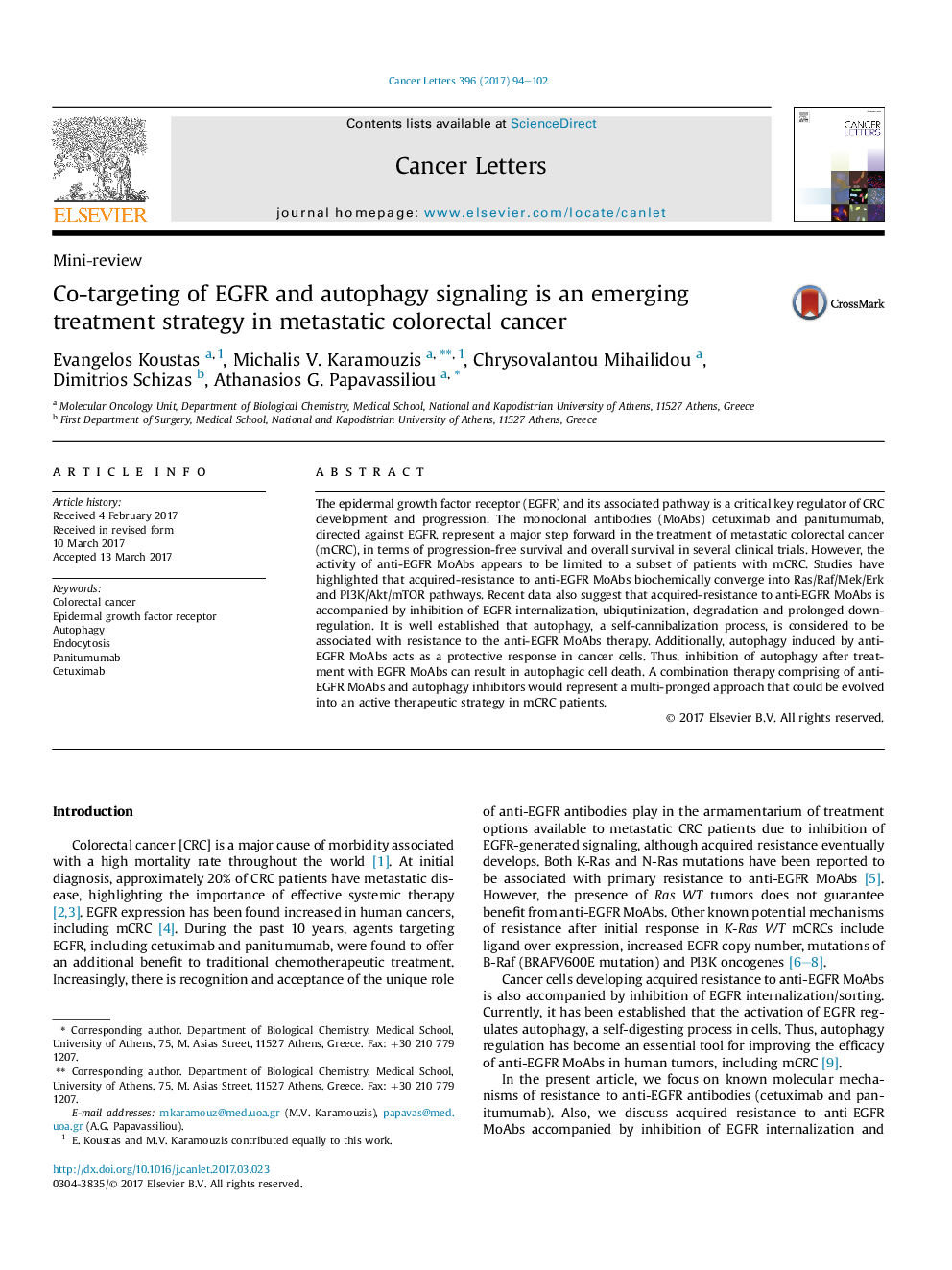| Article ID | Journal | Published Year | Pages | File Type |
|---|---|---|---|---|
| 5525580 | Cancer Letters | 2017 | 9 Pages |
â¢Molecular mechanisms of resistance to anti-EGFR antibodies.â¢Acquired resistance accompanied by inhibition of EGFR internalization and sorting.â¢Anti-EGFR MoAbs can promote autophagy.â¢Targeting autophagy machinery inhibit EGFR trafficking - New therapeutic strategy.
The epidermal growth factor receptor (EGFR) and its associated pathway is a critical key regulator of CRC development and progression. The monoclonal antibodies (MoAbs) cetuximab and panitumumab, directed against EGFR, represent a major step forward in the treatment of metastatic colorectal cancer (mCRC), in terms of progression-free survival and overall survival in several clinical trials. However, the activity of anti-EGFR MoAbs appears to be limited to a subset of patients with mCRC. Studies have highlighted that acquired-resistance to anti-EGFR MoAbs biochemically converge into Ras/Raf/Mek/Erk and PI3K/Akt/mTOR pathways. Recent data also suggest that acquired-resistance to anti-EGFR MoAbs is accompanied by inhibition of EGFR internalization, ubiqutinization, degradation and prolonged downregulation. It is well established that autophagy, a self-cannibalization process, is considered to be associated with resistance to the anti-EGFR MoAbs therapy. Additionally, autophagy induced by anti-EGFR MoAbs acts as a protective response in cancer cells. Thus, inhibition of autophagy after treatment with EGFR MoAbs can result in autophagic cell death. A combination therapy comprising of anti-EGFR MoAbs and autophagy inhibitors would represent a multi-pronged approach that could be evolved into an active therapeutic strategy in mCRC patients.
